Search Results
Showing results 941 to 960 of 2169
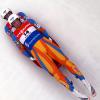
Marble Run!
Source Institutions
This activity (on page 2 of the PDF under SciGirls Activity: Luge) is a full inquiry-based challenge related to motion and design optimization.

The Carbon Cycle and its Role in Climate Change: Activity 2
Source Institutions
In this activity (on page 7), learners explore the meaning of a "carbon sink." Using simple props, learners and/or an educator demonstrate how plants act as carbon sinks and how greenhouse gases cause

Atoms and Matter (K-2)
Source Institutions
In this activity, learners explore atoms as the smallest building blocks of matter. With adult help, learners start by dividing play dough in half, over and over again.
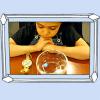
Create a Compass
Source Institutions
In this activity, learners use simple materials to build their own compass.

Boats Afloat
Source Institutions
In this water activity, learners build boats that float and sink. First, learners listen to the book, "Who Sank the Boat" and practice making predictions throughout the story.
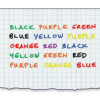
Color Code
Source Institutions
In this activity, learners conduct the "Stroop Effect" test and explore what happens when they try to complete two simple tasks at the same time.

Go with the Flow
Source Institutions
Learners draw comic-style pictures to show the water cycle. From a starting picture, one learner draws what happens to the water in the next panel, then passes the comic strip to another learner.
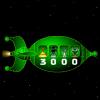
Slush Rush
Source Institutions
In this online game, learners run an outer space drink stand and thirsty alien customers are on the way.

“Chips” Off the Old Block?
Source Institutions
In this activity, learners bake cookies by following different recipes to better understand genetic mutations. Everyone in the group bakes the same type of cookie: chocolate chip.

Move That Lighthouse!
Source Institutions
In this activity, learners explore how engineers work in a team to solve problems.
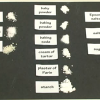
Lost Labels
Source Institutions
In this experiment, learners will conduct chemical and physical tests to identify mystery substances.
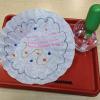
Chromatography Observations
Source Institutions
In this activity, learners will explore how water affects marker on filter paper. Learners will use science process skills such as making observations and predictions as they explore color.

Rescue Rover
Source Institutions
In this activity, learners explore how rescue devices are designed to aid professionals during emergency situations.

Disease Detectives
Source Institutions
In this activity, learners examine antibodies and antibody recognition using a model.

Gas Model
Source Institutions
This highly visual model demonstrates the atomic theory of matter which states that a gas is made up of tiny particles of atoms that are in constant motion, smashing into each other.
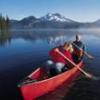
Can You Canoe?
Source Institutions
In this activity, learners explore how engineering has impacted the manufacturing of canoes over time, including the development of new, durable, and lighter materials.

Water "Digs" It!
Source Institutions
In this activity, learners investigate soil erosion. Learners set up a simulation to observe how water can change the land and move nutrients from one place to another.

Electric Gelatin
Source Institutions
In this activity, learners explore static electricity and electrical charges while experimenting with an inflated balloon, unflavored gelatin powder, and a wool sweater.

The Best Dam Simulation Ever
Source Institutions
This online simulation game explores the different consequences of water levels on the Columbia River in the Pacific Northwest.

Properties of Dust
Source Institutions
In this activity, learners carry out a scientific investigation of dust in their classroom. Learners produce an analysis on graph paper of the dust they collect over the course of a few days.
